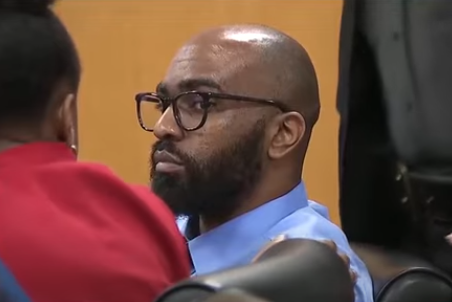Recently, new and disturbing allegations have surfaced involving Kilmara Abrego Garcia, a suspected member of the notorious MS-13 gang, who is currently held in El Salvador. These documents, reviewed by Fox News Digital, reveal serious claims about his violent behavior, adding layers to an already complex case.

Allegations of Domestic Violence and Threats
The filing, dated 2020, exposes that Garcia allegedly threatened to kill his wife, claiming no one would be able to stop him. This chilling statement highlights the violent nature of Garcia’s actions and raises questions about his past behavior. However, this isn’t the first time he has faced allegations of violence. It was revealed that his wife had previously reported incidents of physical abuse, such as kicking, slapping, and even dragging her by her hair. She also recounted incidents where Garcia allegedly left her stranded on the street after forcibly removing her from a car.
These actions are deeply troubling, with further allegations involving mental injury to a child and unlawful detainment. While Garcia’s wife did not follow through with legal actions at the time, the resurfacing of these claims paints a picture of a man with a history of controlling and violent tendencies.
The Impact on His Family
Despite these allegations, Garcia’s wife has reportedly changed her stance, now calling him a “great father” and expressing that their children miss him. This shift in narrative could be attributed to the emotional and psychological toll of domestic violence, where victims sometimes revert to defending their abusers, particularly for the sake of children.
However, it’s important to note that Garcia’s actions are not being overlooked. The new revelations have cast a shadow over his reputation, especially as he remains at the center of a heated debate. His connection to the MS-13 gang and the troubling accusations against him could significantly impact his case, both legally and in the court of public opinion.
Political Dimensions: A Stance on Foreign Policy
The allegations have not only stirred legal concerns but have also drawn attention to political implications. Secretary Rubio’s response to questions about the possibility of Garcia’s return to the United States was striking. When asked about any formal request to bring Garcia back to face charges, Rubio firmly stated that foreign policy decisions belong to the president and would not be dictated by any judge. His refusal to engage on the matter further underscores the sensitive nature of such international legal cases.
This stance, while firmly aligned with the U.S. government’s foreign policy, highlights the complexities involved in extraditing suspects between nations. If Garcia is indeed returned to the U.S., it could open a broader conversation on the intersection of foreign relations, justice, and human rights.
MS-13 Allegations: A Broader Context
The allegations against Garcia also tie into the broader issues surrounding gang violence, human trafficking, and the involvement of the MS-13 gang in criminal activities. The MS-13 gang has long been associated with violence, drug trafficking, and illegal activities, both in the U.S. and across borders. The new claims involving Garcia shed light on how deeply entrenched such organizations are in perpetuating cycles of violence and exploitation.
The timing of the allegations, however, has sparked additional controversy. Critics argue that Democrats are investing political capital in supporting individuals like Garcia, who have connections to such criminal organizations. Some wonder whether aligning with figures tied to human trafficking and violent gangs is in the best interest of political parties aiming to promote justice and uphold the rule of law. This dilemma not only reflects internal political challenges but also reveals how issues like immigration and crime can become entwined with partisan politics.
The Supreme Court Case on Charter School Funding
In a related but separate matter, the Supreme Court heard arguments on funding for religious charter schools. This case, which has the potential to reshape the landscape of religious freedom in the educational system, follows after a Catholic charter school in Oklahoma challenged the state’s exclusion of religious schools from participating in certain funding programs. The debate touches on whether religious schools should be treated the same as other public charter schools and whether such discrimination violates constitutional protections for religious institutions.
The case presents a tricky legal challenge, as Justice Barrett recused herself due to prior professional ties with a party involved in the case. This has left the Court in a precarious position, where a tie in the decision could result in the lower court’s ruling standing. If the Court decides that religious schools can receive public funding, it would mark a significant shift in the interpretation of religious freedom in the U.S. education system.
Looking Ahead: What Does the Future Hold?
The outcome of these legal proceedings could have profound implications for both U.S. foreign policy and domestic law. For Garcia, the allegations against him are just one part of a larger conversation about justice, political influence, and international relations. Meanwhile, the charter school case brings to the forefront issues of religious freedom and equality in the American education system. As these cases unfold, they will no doubt continue to spark debate, shaping the future of legal precedents and political discourse in the United States.


